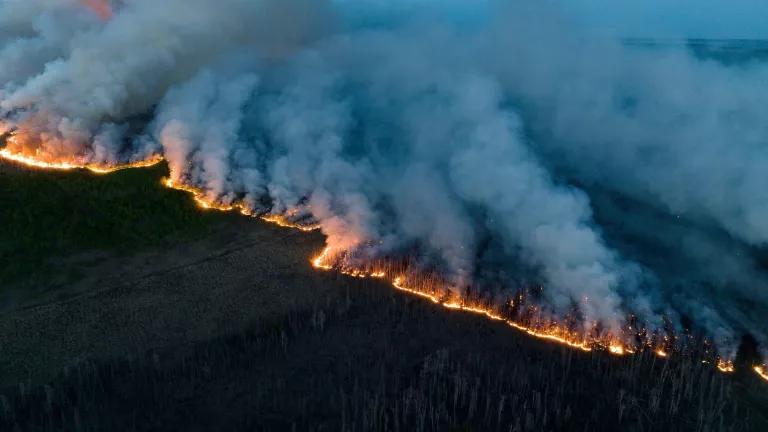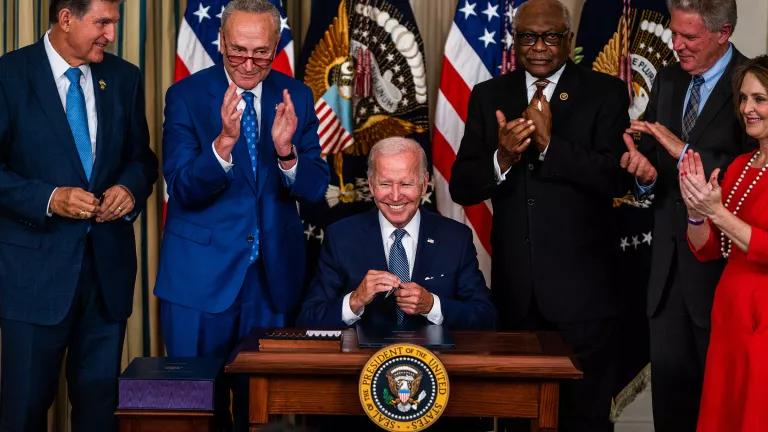Congress Takes Step to Protect American Workers from Heat

The U.S. House Education and Labor Committee is taking critical action today to protect the health of American workers from heat, which is the deadliest form of extreme weather in the United States.
The Asuncion Valdivia Heat Illness and Fatality Prevention Act, spearheaded by Representatives Judy Chu (D-CA) and Raul Grijalva (D-AZ), directs the Occupational Health and Safety Administration (OSHA) to establish the first-ever federal safeguard specific to the health risks of heat. This commonsense measure will help reduce heat illnesses and deaths on the job—particularly as climate disruption driven by fossil fuels pushes day-to-day temperatures and heat waves to new extremes.
Those of us who commute and work in air-conditioned spaces can largely choose to avoid dangerous heat. But millions of Americans don’t have that choice if they want to get paid—either because they work outside, or because their indoor work environment lacks sufficient cooling. That includes everyone from the farmworkers who feed us, to the sanitation workers who keep our neighborhoods clean, to the warehouse workers who ship us endless boxes of merchandise, to the teachers who educate our kids.
Heat illnesses and deaths are preventable with adequate water, rest, and shade. Many employers, however, don’t follow best practices on their own. According to Bureau of Labor Statistics data, an estimated 70,000 workers in the United States were sickened by heat between 1992 and 2017 and another 815 died. The bill introduced today will result in a legally enforceable standard for employers that will require them to develop and implement comprehensive heat plans. These plans will need to include elements such as paid rest breaks, heat-health training for employees and supervisors, and response plans to deal with medical emergencies such as heat stroke. The proposed legislation also includes protections for whistleblowers who report unsafe heat conditions in their workplace.
But wait! What about the cost to employers? Here’s the thing: climate change in itself poses a major threat to the bottom line of businesses large and small. Under a best-case scenario in which global warming is limited to 1.5 degrees Celsius (2.7 degrees Fahrenheit), the world could see heat-related declines in productivity equivalent to 80 million full time jobs in 2030. The U.S. share is an estimated 389 thousand full time jobs in 2030—more than double the labor hours lost to heat in 1995.

By planning ahead, potentially altering work schedules, and taking other measures to ensure workers stay healthy, employers can reduce absenteeism and other costs associated with preventable heat-related illnesses and deaths. Today’s legislation and similar federal and state safeguards will become ever-more critical as our climate gets hotter and more extreme, and American workers put their health on the line just by showing up to work every day.




